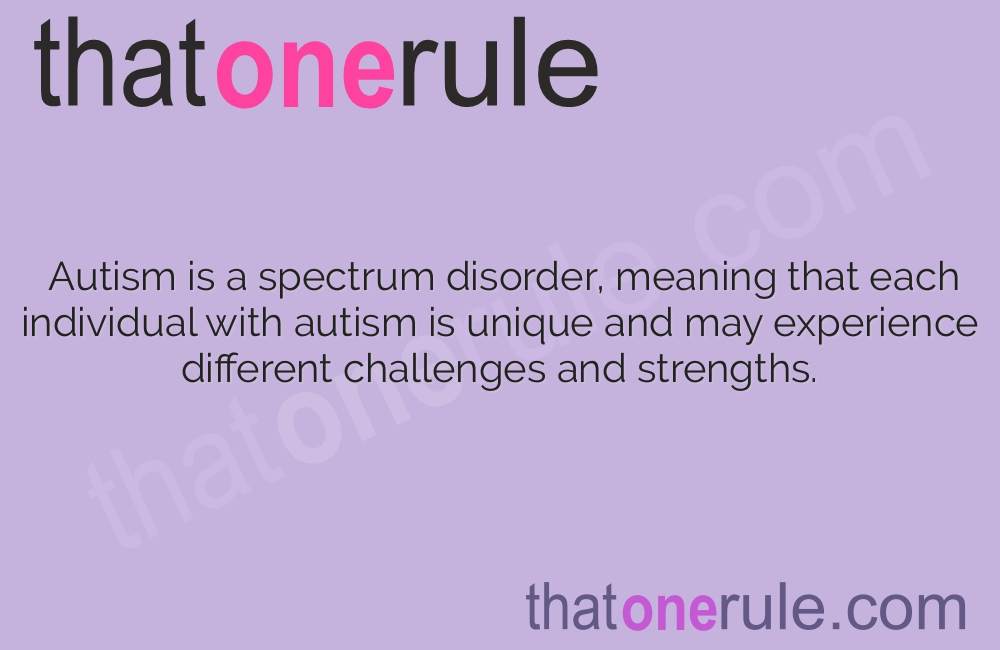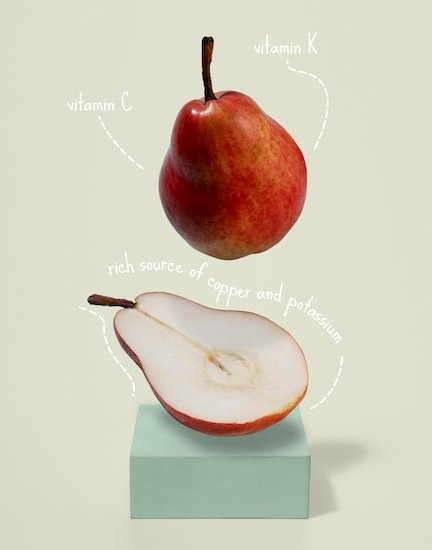Exploring the Facts of Autism Awareness Month

Autism is a spectrum disorder, meaning that each individual with autism is unique and may experience different challenges and strengths.
Autism cannot be cured, but early intervention and support can greatly improve outcomes for individuals with autism.
People with autism often have exceptional abilities in areas such as math, music, art, and memory.
Autism affects more than 1 in 100 children globally, making it one of the most prevalent developmental disorders.
Autism awareness month aims to promote understanding and acceptance of individuals with autism.
Many individuals with autism have sensory sensitivities, meaning they may be over or under sensitive to certain sounds, tastes, or textures.
Difficulty with social communication and interaction is a common trait in autism.
Autism affects individuals of all races, ethnicities, and socioeconomic backgrounds.
Autism is a lifelong condition, but with the right support, individuals with autism can lead fulfilling and independent lives.
Autism is not caused by bad parenting or vaccines, as some myths suggest.
Early signs of autism can include delayed speech, lack of eye contact, and repetitive behaviors.
Sensory overload can be overwhelming for individuals with autism, leading to meltdowns or shutdowns.
Autism is not a disease to be cured but a neurological difference to be understood and embraced.
Many successful individuals in various fields, such as Albert Einstein and Temple Grandin, are believed to have had autism.
Exploring the Facts of Autism Awareness Month part 2
Autism is not always visible, as some individuals may have what is known as hidden autism or high-functioning autism.
Everyone’s autism journey is different, and it’s important to respect individual experiences and needs.
Autism awareness month encourages inclusivity and acceptance in schools, workplaces, and communities.
Sensory-friendly environments, such as quiet spaces or noise-cancelling headphones, can greatly benefit individuals with autism.
Autism is more commonly diagnosed in boys than girls, but this may be due to underdiagnosis in girls.
Applied Behavior Analysis (ABA) therapy is a widely used intervention for individuals with autism, focusing on teaching adaptive skills and reducing problem behaviors.
Autism is a lifelong condition, and support is needed throughout all stages of life, from childhood through adulthood.
Individuals with autism have the same rights and deserve the same opportunities as anyone else.
Many individuals with autism have unique talents and perspectives that can greatly contribute to society.
Autism acceptance means understanding and appreciating neurodiversity, rather than trying to fit everyone into a neurotypical mold.
Social stories and visual supports can help individuals with autism navigate social situations and daily routines.
Many individuals with autism excel in specialized fields or careers that require attention to detail and focus.
Autism can coexist with other conditions, such as ADHD, anxiety, or depression, making comprehensive support important.
Autism awareness implies the recognition of the challenges individuals with autism face, but also the celebration of their strengths.
The autism community is diverse, and it’s important to listen to and amplify the voices and experiences of autistic individuals themselves.
Autism is not a barrier to love, friendship, or success.
Making small accommodations, such as providing clear instructions or allowing extra processing time, can greatly support individuals with autism.
Sensory-friendly events and spaces promote inclusivity and allow individuals with autism to fully participate.
Autism research is ongoing, aiming to improve understanding, support, and quality of life for autistic individuals.
Encouraging open communication and empathy can foster positive relationships with individuals with autism.
Employment opportunities for individuals with autism should be inclusive and tailored to their skills and strengths.
Autism is not a disorder that can be fixed or erased, but rather a part of someone’s identity that should be embraced and respected.
Educating others about autism can help reduce stigma and misconceptions surrounding the condition.
Acceptance and support are essential for the mental health and well-being of individuals with autism.
Individuals with autism may experience sensory overload in noisy or crowded environments, leading to anxiety or withdrawal.
Early intervention and proper support can greatly enhance the quality of life for individuals with autism and their families.
Sensory-friendly clothing, such as seamless socks or tagless shirts, can help individuals with autism feel more comfortable.
Personalized visual schedules or task organizers are useful tools to help individuals with autism manage their daily routines.
Individuals with autism may have difficulty understanding or interpreting social cues, leading to misunderstandings or social isolation.
Autism awareness month encourages inclusive education, ensuring that individuals with autism have access to learning environments that meet their unique needs.
Supporting autism awareness means recognizing the value of every individual, regardless of their neurodiversity, and fostering a more inclusive and accepting society.

